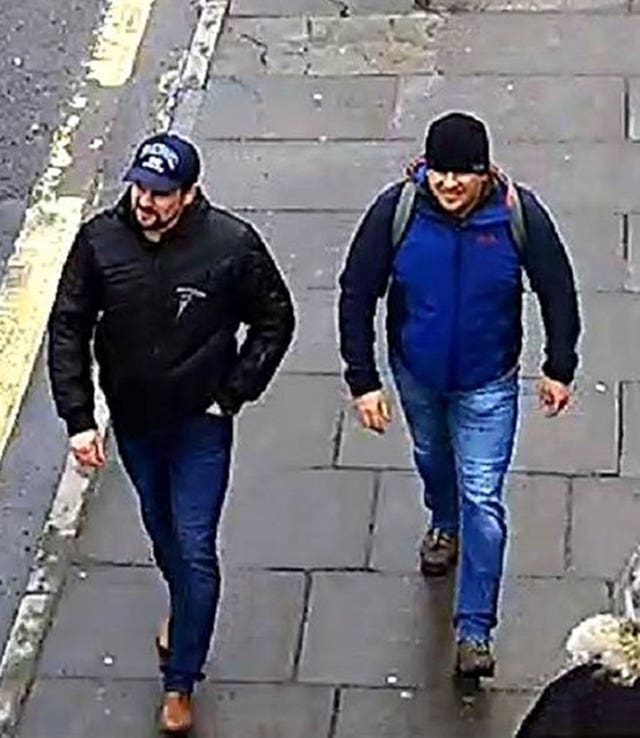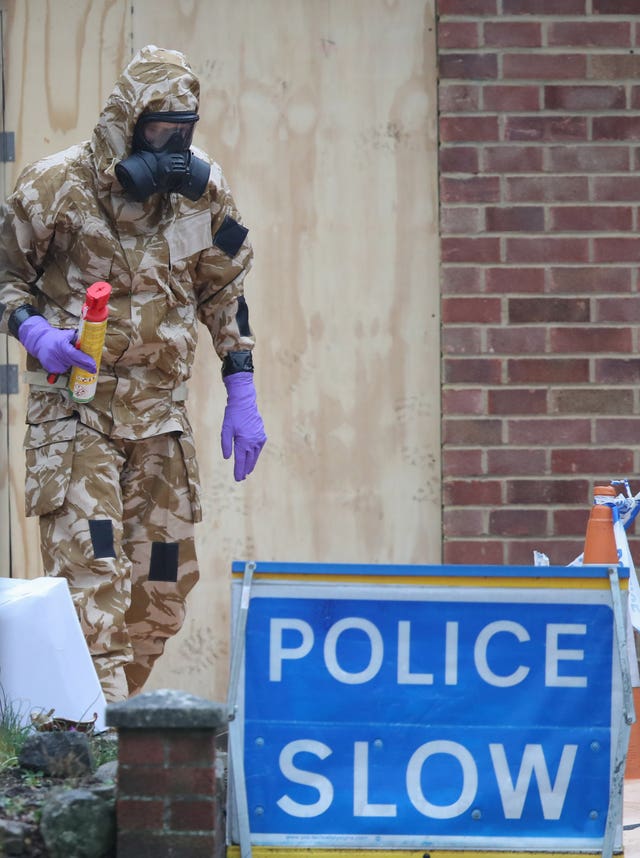
Two judges are considering whether the scope of an inquest into the death of a woman poisoned by the nerve agent Novichok two years ago should be widened.
Dawn Sturgess, 44, died in hospital in Salisbury, Wiltshire, in July 2018 after collapsing at her partner Charlie Rowley’s home in Amesbury, Wiltshire.
Her daughter has taken High Court action after a coroner placed limits on what would be investigated at an inquest.
She says the decision made by David Ridley, the senior coroner for Wiltshire, is flawed.
Two judges began considering the case at a virtual High Court hearing on Tuesday.
Lord Justice Bean and Mr Justice Lewis said Ms Sturgess’s daughter is a child and ruled that she cannot be fully named in media reports of the case.
They said an adult relative is acting as the youngster’s “litigation friend”.

A barrister representing the girl said Ms Sturgess was exposed to the same military-grade nerve agent believed to have been used in an attempted assassination of former agent Sergei Skripal and his daughter, Yulia, in Salisbury in March 2018.
Michael Mansfield QC said the question of who was responsible for the use of Novichok was a matter of “almost-unparalleled public concern”.
But Mr Mansfield said the coroner had decided that he would not consider whether any Russian state agents, other than the suspects – Russian military intelligence agents known as Alexander Petrov and Ruslan Boshirov – were responsible for Ms Sturgess’s death, or issues relating to the source of the Novichok.
He said that meant the inquest would not investigate “credible allegations” that other Russian state agents were involved or “key questions” about how “the operation” was arranged.

“The use of Novichok in Salisbury was the first aggressive use of a nerve agent in Europe since the Second World War,” said Mr Mansfield in a written case summary.
“It put hundreds of members of the British public at risk and killed Ms Sturgess.
“The issue of who was responsible for it is a matter of almost unparalleled public concern.
“There is no realistic prospect that the two suspects will face a criminal trial in the UK or that the Russian state will carry out a comprehensive investigation, and no public inquiry into these events has been established.
“Accordingly, the impact of the senior coroner’s decision is that there will be no further public investigation of these important issues.”
He argued that Mr Ridley’s “proposed approach” would soon “become unworkable and ineffective”.
The hearing continues and is due to end on Wednesday.


Comments: Our rules
We want our comments to be a lively and valuable part of our community - a place where readers can debate and engage with the most important local issues. The ability to comment on our stories is a privilege, not a right, however, and that privilege may be withdrawn if it is abused or misused.
Please report any comments that break our rules.
Read the rules hereComments are closed on this article